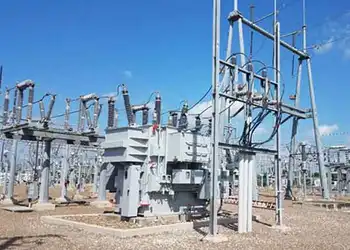Hydro One bends to government demands, caps CEO pay at $1.5M

Protective Relay Training - Basic
Our customized live online or in‑person group training can be delivered to your staff at your location.

- Live Online
- 12 hours Instructor-led
- Group Training Available
Hydro One CEO Pay Cap sets executive compensation at $1.5 million under Ontario's provincial directive, linking incentives to transmission and distribution cost reductions, governance improvements, and board pay limits at the electricity utility.
Key Points
The Hydro One CEO Pay Cap limits pay to $1.5M, linking incentives to cost reductions and defined targets.
✅ Base salary set at $500,000 per year.
✅ Incentives capped at $1,000,000, tied to cost cuts.
✅ Board pay capped: chair $120,000; members $80,000.
Hydro One has agreed to cap the annual compensation of its chief executive at $1.5 million, the provincial utility said Friday, acquiescing to the demands of the Progressive Conservative government.
The CEO's base salary will be set at $500,000 per year, while short-term and long-term incentives are limited to $1 million. Performance targets under the pay plan will include the CEO's contributions to reductions in transmission and distribution costs, even as Hydro One has pursued a bill redesign to clarify charges for customers.
The framework represents a notable political victory for Premier Doug Ford, who vowed to fire Hydro One's CEO and board during the campaign and promised to reduce the annual earnings of Hydro One's board members.
In February, the province issued a directive to the board, ordering it to pay the utility's CEO no more than the $1.5 million figure it has now agreed to, as part of a broader push to lower electricity rates across Ontario.
Hydro One and the government had been at loggerheads over executive compensation, with the company refusing repeated requests to slash the CEO pay below $2,775,000. The board argued it would have difficulty recruiting suitable leaders for anything less, even as customers contend with a recovery rate that could raise hydro bills.
Further, the company agreed to pay the board chair no more than $120,000 annually and board members no more than $80,000 — figures Energy Minister Greg Rickford had outlined in his directive last month, amid calls for cleaning up Ontario's hydro mess from policy commentators.
"Hydro One's compliance with this directive allows us to move forward as a province. It sets the company on the right course for the future, proving that it can operate as a top-class electricity utility while reining in executive compensation and increasing public transparency," Rickford said in a statement issued Friday morning.











